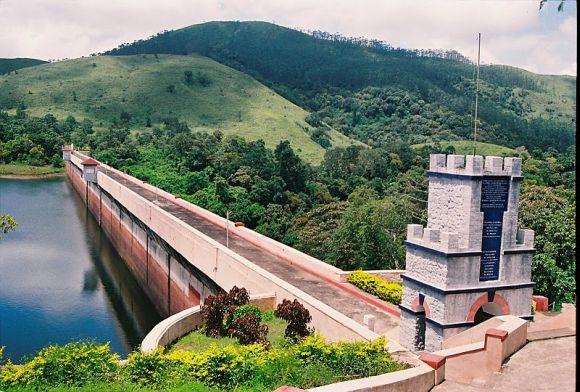
Kerala should have decommissioned the Mullaperiyar dam long back. Question of any mechanism to replace the benefits that the dam may be providing are important no doubt, but only be secondary, notes Himanshu Thakkar.
The facts are simple, but not pretty: A dam that is now 116 year old developed leaks and cracks during the earthquake in 1979. Recently, at least four earthquake tremors since July 2011 (as accepted by Tamil Nadu in an application before the Supreme Court filed on December 1) are only the latest of the seismic activity in the dam area in this context.
Several expert bodies including the Indian Institute of Technology, Centre for Earth Science Studies, etc. have concluded that the dam structure and foundation is too weak to take the shock of earthquake of magnitude 6.5 on Richter scale, which is very much likely at the dam site.
The dam is not able to take the load it is supposed to take. Its unique construction material, geological and seismic location does not render it fit for any further technical solution.
The dam in existence since October 1895 lies on the soil of Kerala, and it is the people of Kerala who are at risk if the dam collapses.
Himanshu Thakkar is coordinator of the South Asia Network on Dams, Rivers & People. He can be reached at ht.sandrp@gmail.com
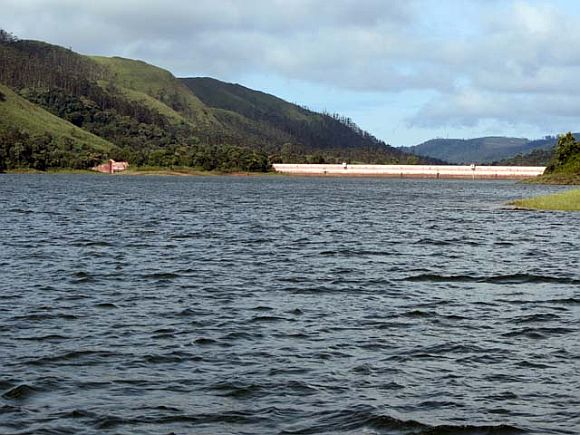
At least 75,000 people are at risk between this and the next dam (Idukki) in the Periyar river basin. If the Idukki dam also gives way, another 3 million may be at risk.
Kerala assembly has passed a dam safety act in 2006 that requires it to decommission unsafe structures like the Mullaperiyar dam. In any case, it is the duty and mandate of the state government under constitution of India to take all such measures that are necessary for the safety of the citizens.
So, the primary message is simple: Kerala should have decommissioned the Mullaperiyar dam long back. Question of any mechanism to replace the benefits that the dam may be providing are important no doubt, but only be secondary.
But Kerala government has not been able to perform its legal and constitutional duty to protect the life, livelihoods and property of the people of its state. Not because it did not want to do it. Not because it lacks technical or financial resources to do it.
Because a neighbouring state of Tamil Nadu that controls and manages the dam does not want Kerala to decommission it! Because the Central Water Commission and Union Ministry of Water Resources are acting as lobbyists for large dams and they do not want the dam to be decommissioned.
Also because in the pending case before the Supreme Court there has been no decision in favour of the safety of the people of Kerala. The current ongoing petition has been filed in SC in 2006 by Tamil Nadu, challenging the validity of the Kerala Dam Safety Act of 2006.
On February 18, 2010, the apex court appointed a committee headed by former Chief Justice of India Justice (Retd) A S Anand to look into the safety of the existing dam. But that committee, in a strange order on August 31 this year, declined to permit Kerala state to produce additional evidence on the issue of safety of the dam in the form of reports from two experts, Dr D K Paul and Dr M L Sharma. This is not likely to inspire confidence in the proceedings of the committee.
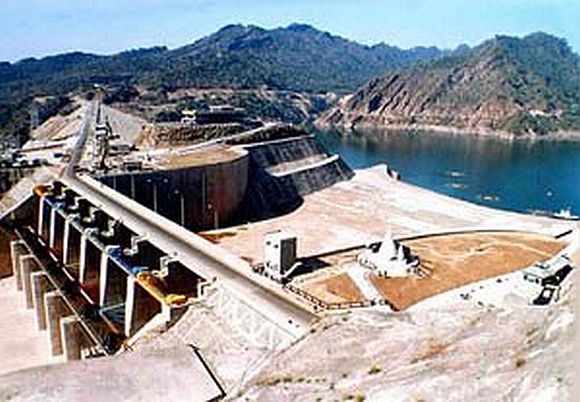
The Central Water Commission, strangely, for its ideological 'pro dam' stance, does not want the Mullaperiyar dam to be decommissioned.
But when a dam passes its useful life and becomes unsafe, it has to be decommissioned. United States of America this year decommissioned 1,000th dam, many of them for reasons of safety.
Even in India the Hathnikund barrage on Yamuna and Narora barrage on Ganga were decommissioned to replace them with new barrages.
In any case, CWC has had a poor track record in terms of ensuring safety of dams or safe operation of dams. For example the 118 year old Jaswant Sagar dam in Rajasthan that breached in July 2007 was actually supposed to be monitored under the World Bank funded "Dam Safety Assurance and Rehabilitation" Project.
The dam safety projects were being supervised by the Central Water Commission. In spite of the dam safety project and CWC involvement, the dam did breach and strangely, no one was held responsible.
We hope Mullaperiyar dam does not breach before getting decommissioned, else there won't be anyone in CWC or elsewhere responsible, even if so many of them are swearing today by the safety of the dam.
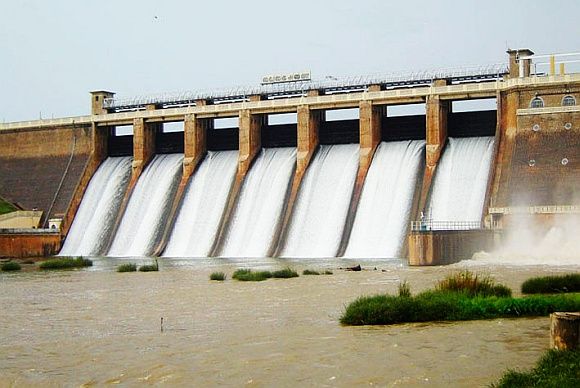
Here it is pertinent to note that there is so little independent expertise in India on issues like that of safety of the dam. Moreover, on the issue of monitoring and ensuring safety of the dams and their safe operation that have such far reaching public interest dimensions, there is no role for independent experts, nor any transparency, leave aside accountability.
The need for such independent expertise becomes even more necessary considering that bodies like the Central Water Commission have shown their 'pro large dam' bias and is also found to have poor track record.
In such a situation, when the apex court appointed committee refuses a party state to produce additional expert evidence, it certainly raises many questions. People hope that the committee, in its next meeting on December 5, provides a quick relief to the beleaguered people of Kerala and recommends decommissioning of the Mullaperiyar dam.
It is notable here that Tamil Nadu had so "unsatisfactory performance" (as per the Implementation Completion Report of the World Bank dated May 2000 for its Dam Safety Project in India in 1990s) on dam safety issue that the state had to be dropped from the World Bank funded Dam Safety programme.
Mullaperiyar dam was supposed to be part of this programme, but Tamil Nadu failed to complete the safety programme for this dam. Even CWC was seen to be less than pro active on these issues as per the World Bank report.
The reason for Tamil Nadu government's stand against decommissioning of the Mullaperiyar dam is that the dam provides irrigation water to at least four districts of Tamil Nadu. But Kerala government has assured that it will continue to provide the water to Tamil Nadu.
This is actually an unparalleled magnanimity from Kerala that no other state of India has shown. No state in India wants to give water to another state, even when the recipient state shares the basin in question.
In this case, the Periyar basin is entirely in Kerala, the dam also in Kerala, but all the benefits from the dam goes to Tamil Nadu. And even now Kerala is saying that they will ensure that Tamil Nadu continues to get the same quantity of water they get now.
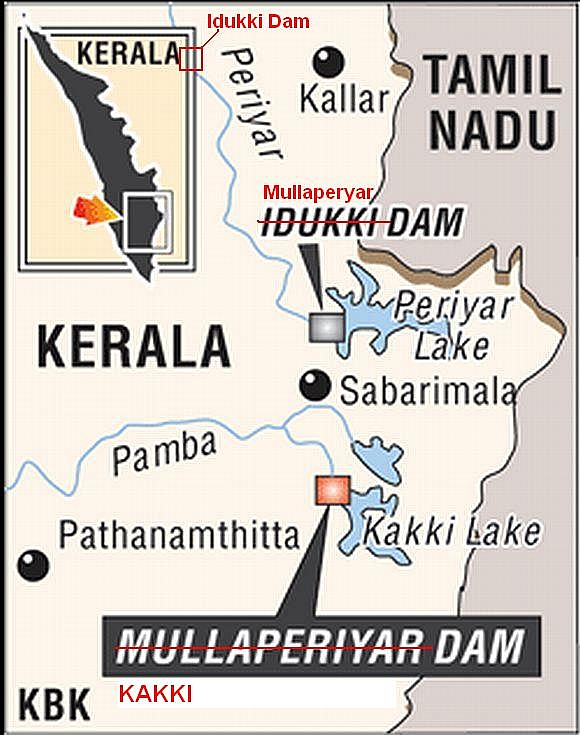
Not only that, the Kerala government has given in writing that they will not even seek any expenses for the new mechanism.
Moreover, this arrangement of giving water to Tamil Nadu is a legacy of Colonial era. In 1886, a lease deed was signed between the secretary of the then Travancore state and Madras government, brokered by the secretary of state of British government in Delhi.
The lease deed is for astounding 999 years on terms that are completely unfavourable to Kerala. Considering all the aspects, it is indeed magnanimous on the part of the Kerala government to agree to continue to provide to Tamil Nadu the water that it is currently getting.
So the solution is pretty simple. But the failure of the various institutions over the years since 1979 has meant that the millions of lives in Kerala continue to be at risk. It is not that Kerala government is without blame.
Kerala government has so far not even conducted a dam break analysis, nor done an analysis indicating which areas would be inundated if the Mullaperiyar dam breaks.
According media reports on November 30, Kerala was likely to enter into an agreement with Indian Institute of Technology (Roorkee) for such a study, but IIT-Roorkee is known to have a pronounced pro large dam bias and the report is not likely to carry too much credibility.

The state also has no clear disaster management plan including likely time that water will take to travel to the various locations downstream, safe places where people can be evacuated, etc.
The Kerala state advocates have also failed to counter the wrong arguments of Tamil Nadu in the courts contending that downstream Idukki reservoir would be able to absorb all the water that would be released if the Mullaperiyar dam breaches.
This will certainly not be the case, for example if both the dams are full at the time of breach. This was exactly the condition several times at the end of the monsoon.
Kerala government's proposition that it is ready to construct a new dam downstream of the current dam, to take care of the Tamil Nadu's water requirement, is devoid of logic and necessity.
The Mullaperiyar Agitation Council has rightly opposed this proposal, since there are no dam options available for ensuring that the concerned farmers in the Tamil Nadu continue to get water for their agriculture.
The residents of Vandiperiyar town in Kerala in the path of the river downstream from Mullaperiyar dam have been on the streets for months, since they continue to be at risk from the likely breach of old or new dam.
The risk of breach of the dam will remain alive considering that the geologic and seismic character of the area is not going to change.
The Supreme Court in its various judgements has upheld the precautionary principle, the principle of intergenerational equity and right to life. All these are eminently applicable in the case of Mullaperiyar dam and the people of Kerala at risk from its breach.
Let us hope wiser counsel prevails and fundamentalist position does not hold the safety of lakhs of Kerala people hostage. In fact this issue also has larger lessons in making other dams and their operations safe in India and creating credible, transparent, participatory mechanisms to ensure that.
We clearly do not have any such mechanism today.